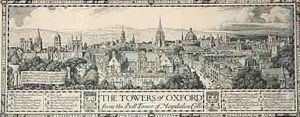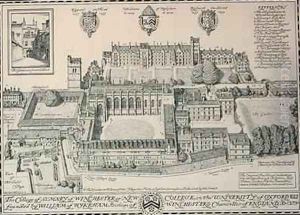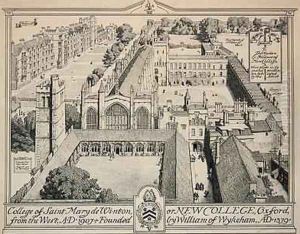Edmund Hort New Paintings
Edmund Hort New, born on December 31, 1871, in Evesham, Worcestershire, England, was an English artist, illustrator, and engraver, known particularly for his abilities as a draughtsman and his contribution to the revival of wood engraving in the late 19th and early 20th centuries. New combined his interest in history and architecture with his artistic talent, which resulted in a unique contribution to the illustration of topographical and historical works.
New studied at the Birmingham School of Art where he was influenced by the Arts and Crafts movement, a design movement led by William Morris that emphasized handcraftsmanship, simplicity of form, and the use of local materials and traditional techniques. His work is characterized by its clean lines and careful attention to architectural detail, reflecting the principles of the Arts and Crafts movement.
Throughout his career, New worked on numerous illustrated books, often focusing on historical or literary subjects. He gained recognition for his work on the 'Highways and Byways' series, where his illustrations complemented the text with detailed and evocative images of the British landscape and its built heritage.
In addition to his book illustrations, New also produced a number of notable prints and engravings. His works were exhibited at the Royal Academy and elsewhere, earning him a reputation as one of the leading artists in his field. New's contributions to the revival of wood engraving were significant, as he was part of a group of artists who sought to keep the traditional methods and aesthetics of this art form alive in the face of the growing industrialization of the printmaking process.
Despite his success, New lived a modest life and never sought fame. He was dedicated to his craft and spent much of his time traveling throughout Britain, capturing the essence of its rural landscapes and architectural heritage. Edmund Hort New passed away on May 31, 1931, leaving behind a legacy of work that continues to be appreciated for its beauty and historical value.


